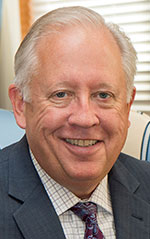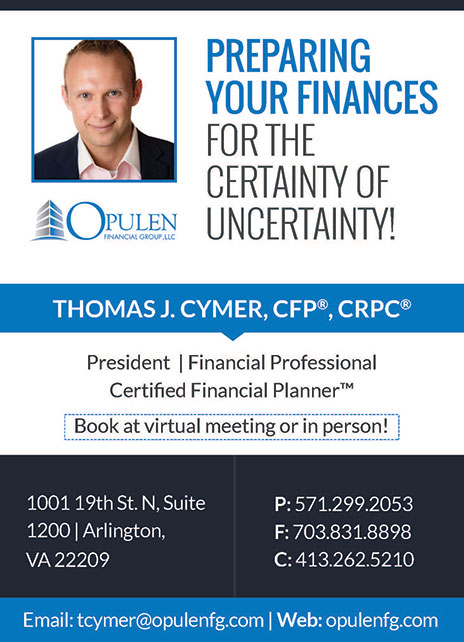Reimagining the Future of American Leadership
While acknowledging our strength and past achievements, American leadership today will be defined by our grasp of the future.
BY THOMAS A. SHANNON JR.
Nostalgia is not a virtue in diplomacy. This is especially true in times, like today, of high-velocity, high-impact change.
Jules Cambon, a great French diplomat of the early 20th century, wrote of the melancholy that overtook European diplomats in the aftermath of World War I. He said that an age of publicity, democracy and nationalism had taken the charm out of diplomatic life, and had reduced the ability of diplomats to display “character and initiative.” Yet he recognized the changed nature of the world, and wrote: “We may regret it as Roland regretted the loss of his mare, but it is idle to try to revive the past.” Cambon urged his colleagues to adapt themselves to changing circumstances, and assured them that while the appearance of diplomacy might change, its substance would remain. His confidence was based on two enduring truths: first, human nature does not change; and second, “Foreign policy is not a matter of sentiment; its object is to shape events in conformity with the laws which govern national destiny.”
Cambon’s words are worth keeping in mind as we engage in a national debate on our purpose in the world and the content of our foreign policy and diplomacy. Currently, that debate tends to harken back to earlier times in the history of our great republic during which bipartisanship, strategic consensus, concerted action with reliable allies, well-defined adversaries and enduring accords protected and advanced our national security interests independent of any domestic discord. Quite apart from the possibility that this past is more imagined than real, it seems evident that the American people want a foreign policy vision that captures and defines the future, and not one that parses the past.
This is not to diminish what we have achieved. Across more than two centuries of national life, our elected leaders and diplomats have carried us successfully through many thresholds of profound national and global change. The genius of American diplomacy has been its ability to see clearly, think grandly and act accordingly.
The Purpose of American Diplomacy
For instance, Dean Acheson, in his magisterial Present at the Creation, describes how the United States built “order out of chaos” in the aftermath of World War II. He describes the effort in terms reminiscent of Genesis. But as Acheson told this story of “large conceptions, great achievement and some failures,” he was careful to highlight the uncertainness of the task. He wrote that the enormity of the task that lay before them “only slowly revealed itself.” He noted that “the state of the world in those years and almost all that happened during them was wholly novel within the experience of those who had to deal with it.” But ignorance of the task they faced, and the obstacles they would be required to overcome, never deterred what Acheson called the energy and buoyant determination with which they faced this challenge.
Acheson’s point was echoed by Hans Morgenthau in his book, The Purpose of American Politics: “Greatness is vouchsafed to us not because we are the heirs of great men (like Lincoln and Washington) but because we are still animated by the principles and purposes that defined their lives.” He asserted that the United States is not a status quo or revanchist power. Instead, he said, “Our purpose is not to defend or preserve the present or restore the past; it is to create the future. When we struggle, it is to defend one kind of future against another.”
How we define American leadership depends on how we define the future. While our accomplishments give us primacy of place, and our power demands the world’s attention, we live in a world of accelerating change where power abhors not only a vacuum, but the status quo. The American people, as well as our allies and partners, recognize that we are in the uneasy position of protecting what we have built while we imagine our next important achievement. In this environment, our greatest fear should be that of stagnation. We face a simple truth: He who moves forward wins.
Understanding the Drivers of Change
We must restore vitality to our dialogue and engagement and inventiveness to our work if we are to match the pace of life. To understand the major drivers of global change, and the context in which we must address them, we need look no further than the work of our National Intelligence Council. Every four years, our colleagues at the NIC’s Strategic Futures Group produce a report on what former NIC Chairman Gregory Treverton called “the forces and choices shaping the world before us over the next two decades.” The NIC has produced six such Global Trends reports. The most recent—“Alternate Worlds” (2013) and “Paradox of Progress” (2017)—are prescient and mind-stretching.
At the risk of oversimplifying through summary, I will share the four major drivers of global change identified by the NIC:
First, the rise and empowerment of the individual as a national and global actor. The emergence of a global middle class is the dominant social phenomenon of the 21st century. Unlike President Woodrow Wilson at Versailles, who had to manage the emergence of peoples onto the global landscape and address their demand for a role in determining national destiny, today we must address the demand of individuals for a role in fashioning their own destiny. In other words, increasingly political legitimacy lies not solely in political rights, but in the opportunities and resources that governments provide their citizens. Democracy becomes a social phenomenon, and identity becomes its expression.
Second, the transformation of power, or the flattening of the world. As the winner of the Cold War, the United States is the only surviving superpower. However, our ability to project our power anywhere at any time is tempered by the recognition that we cannot commit our power everywhere all the time. This, compounded by the emergence of regional powers with global ambitions, means we must act judiciously. We must determine which of our interests require the exercise of our power, and where stability requires accommodation.
Third, the aging of the world. As a social phenomenon, this is a corollary to the rise of the individual and the middle class. It is the product of increased wealth, better education and health care, and enhanced security. Within democracies, this phenomenon will reshape the allocation of economic resources, increase demands for stability and redefine national interests. For our authoritarian competitors, such as Russia and China, the risk of “aging out” becomes a major concern and shortens their perceived window to accomplish their global goals. And, on the other hand, there is a persistent youth bulge on the periphery of the global economy. Absent significant economic growth and job creation, the young men and women who make up this bulge will feed instability, mass migration and conflict.
Finally, the growing nexus between food, energy and water. This is tied to the previous drivers of change. A growing global middle class wants to eat better, live better and have access to the energy necessary for its comfort. An aging population is increasingly a consuming, not a producing, population. The remaining youth bulge will not give up its aspirations to accommodate those who have already arrived. And competition and conflict within regions will increasingly occur around these resources.
Challenges for Governance and Diplomacy
These drivers of change create a challenging context for governance and diplomacy. While opportunities abound, the NIC notes that our new century will be defined by a world with the following characteristics: (1) The rich are aging, and the poor are not; (2) The global economy is shifting and incapable of large growth due to shrinking workforces in major economies and diminishing productivity gains; (3) Technology is accelerating but will aggravate differences between winners and losers; (4) Identities and ideas are driving a new wave of exclusion; (5) Governing is getter harder, and the institutions of governance are overtaxed by increasing demands and declining capacity; (6) The nature of conflict is changing; and, (7) Historically deferred decisions—especially related to health care, the environment, transnational crime and social justice—will demand attention at a moment when governments will have a declining ability to address them.
There is a darkness in this depiction of a world with rising conflict, regional struggle, incompatible economic and social demands, and an increasing number of people and countries with veto power over concerted action. Yet these scenarios also point to a future where resilient nations and societies can prosper. The “Paradox of Progress” report notes: “The most powerful actors of the future will be states, groups and individuals who can leverage material capabilities, relationships and information in a more rapid, integrated and adaptive mode than generations past.” It continues: “The ability to create evocative narratives and ideologies, generate attention, and cultivate trust and credibility will rest in overlapping but not identical interests and values.” In other words, our salvation will lie within our own society, in our respect for the diversity of interests, and in our diplomatic ability to build the partnerships and alliances necessary to create “webs of cooperation” that are driven by their immediate relevance to the well-being of our people and those of our partners.
The challenge to American leadership lies in our ability to shape narratives that capture the imagination of others, to build the engagement and cooperation necessary to provide substance to this narrative, and to provide the stability and peace necessary for the full flourishing of the dynamism that exists within our society. Hans Morgenthau wrote: “The world has been conscious of American purpose in the measure that America was determined to achieve it.” This determination requires a vision of the future in which we become alert, in the words of Walter Lippmann, “to a process of continual creation, an unceasing invention of forms to meet constantly changing needs.”
In short, we must act to amplify the possibilities of life and human engagement.









